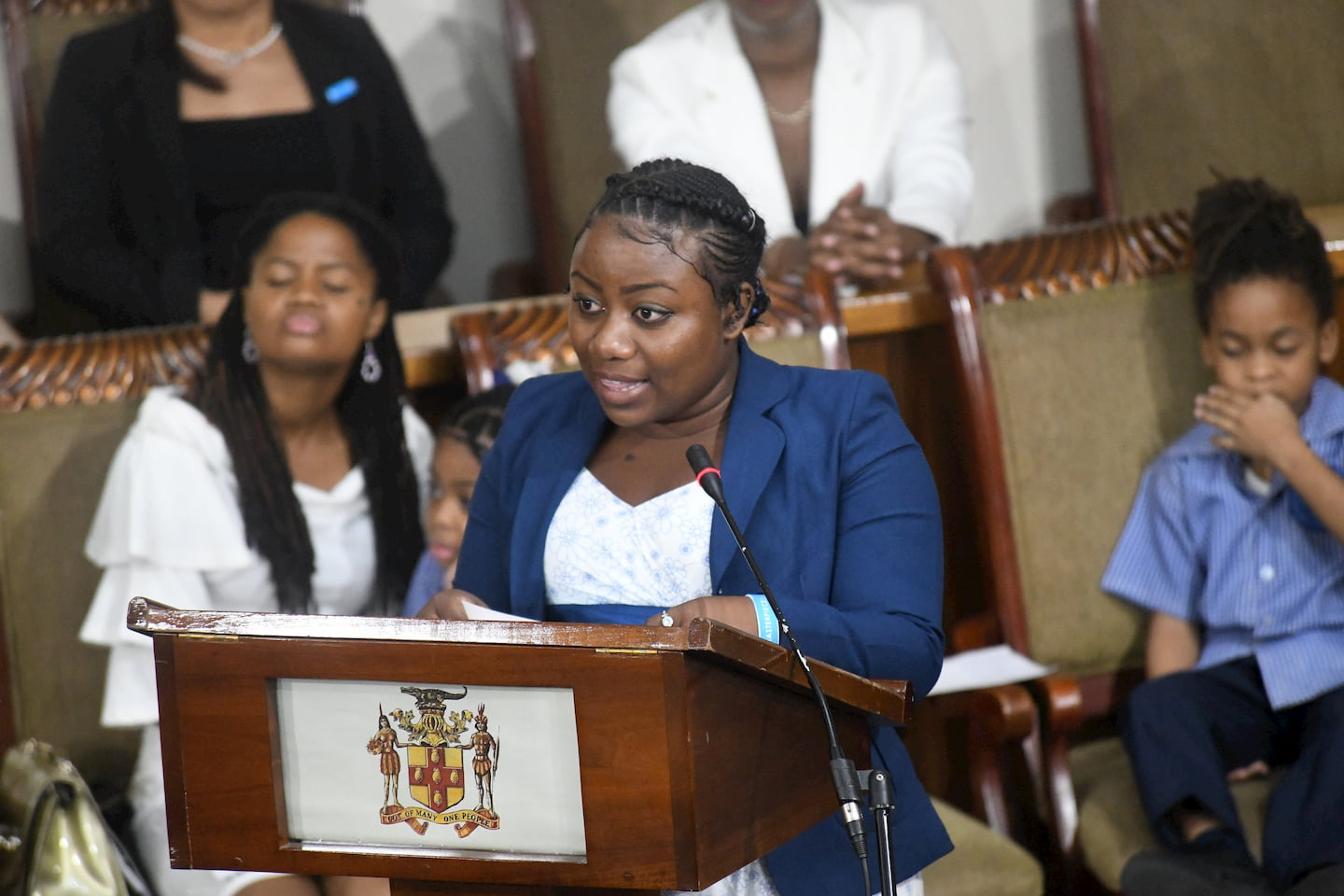Hearts of stone became hearts of flesh in the House of Representatives on Tuesday as Shaneille Hall told of the teenage torture of sexual abuse by the grandfather she yearned and deserved to trust. Her courage and resilience broke through the usual toughness and bravado of the chamber. Weeks ago, there had been a discussion about gender violence. A law was passed, every dry clause minutely dissected. This time, the lawmakers were hearing a victim, calmly and searingly, relate her horror first hand.
The occasion was the first-time ever appearance of young people, expressing their testimony and pleas, regarding violence against children, in their own words, organised by UNICEF and the Office of the Children’s Advocate. The nation would be well served if more occasions like this were permitted to ventilate and draw attention to matters of urgent public import.
Shaneille exposed herself so that others, in fear or denial, might be encouraged to break their silence. Now a young mother striving for tertiary education and a career, her pain and her aspiration represent the struggle of countless adolescents who suffer. They, by reason of material want or cultural prejudice, are often not heard, most times not believed, and almost always offered little or no assistance.
And all this was revealed on International Men’s Day!
The Parliament, often at war within itself, had better stand together to offer the brave and radical leadership for naming, shaming and changing the culture of violence which for generations has been inflicted on Jamaican children. This is what the young ones and their advocates demanded of the assembled honourables.
Both Mr Holness and Dr Phillips have spoken persuasively on the need for non-violence in the home, schools, and in the conduct of the security forces and judicial system. Amending laws alone will not stop the suffering. Both leaders are correct in pointing to the need to create and strengthen institutions that can influence behaviour change. Clear alternative measures to corporal punishment must be carefully thought out.
Shaneille’s vulnerability was heightened by insufficient family support and a very limited system of state care. A more thorough curriculum of wholesome sexual education, coupled with sufficient, observant guidance counsellors and social workers, could prevent the unrequited pain of many Shaneilles.
Every church can be tasked to provide mentors for the perhaps half of the school population in need of guidance and conduct modification. Dr Peter Phillips is right: There are enough persons of goodwill who can help fill the gaps of homes and communities. There have been town-hall meetings treating with violence meted out to children, at which useful suggestions have been proferred and which are to be referred to a parliamentary committee, hopefully to be distilled into public policy.
Purposeful interventions to better safeguard our children are both essential and affordable from existing resources. The kind of real concern evident in the House this week ought to lead to the same realignment of priorities and flexibility of funds that has resulted in another billion dollars being found quickly to fight the dengue epidemic, not to mention the further one billion and more made available for Christmas works, and countless amounts being stored up for an elections in the offing.
More important even than the money, civic and political leadership, compromised by cynicism and many self-inflicted wounds, can still respond to the children’s cry and rouse the nation’s conscience against advantage-taking, bullying, and physical, psychological and sexual violence.
Do this and Shaneille’s pain will be assuaged. And once again, a child shall have led us.







